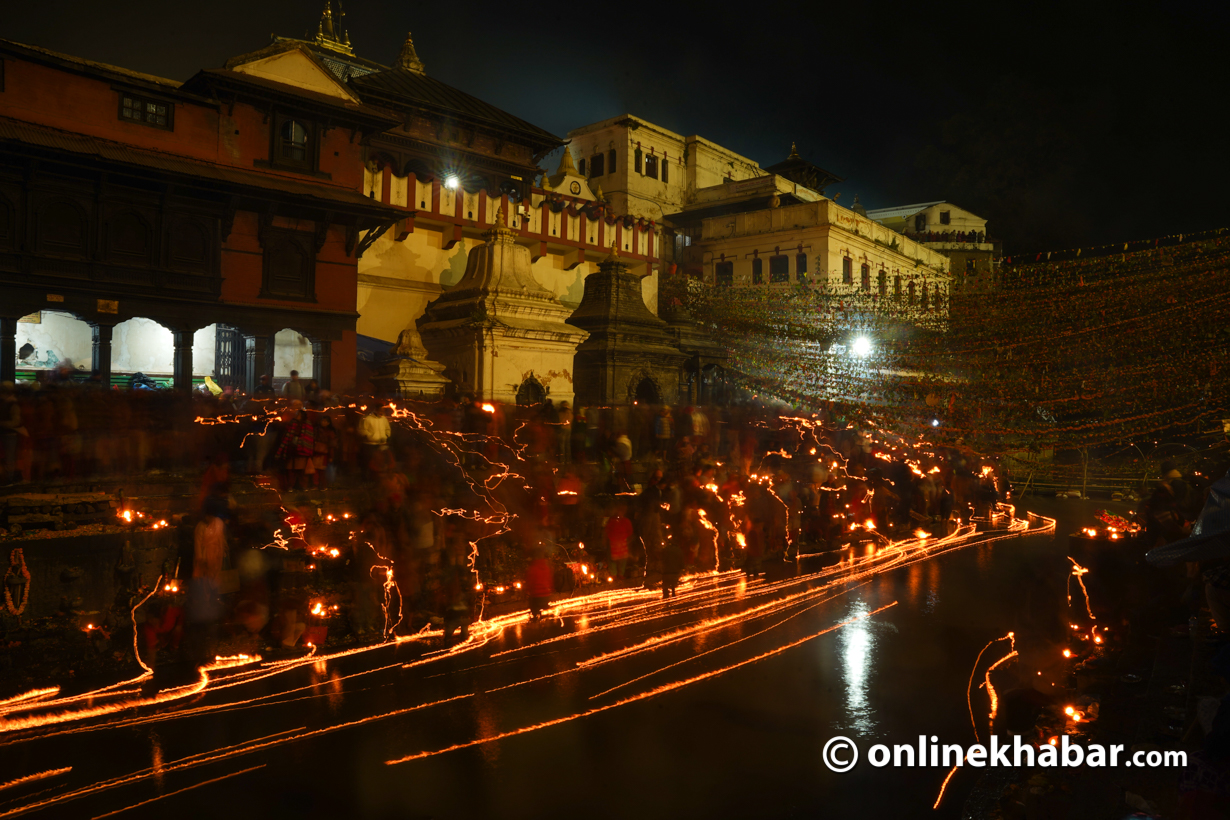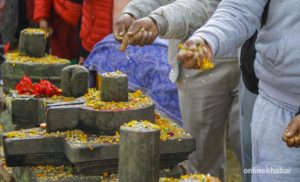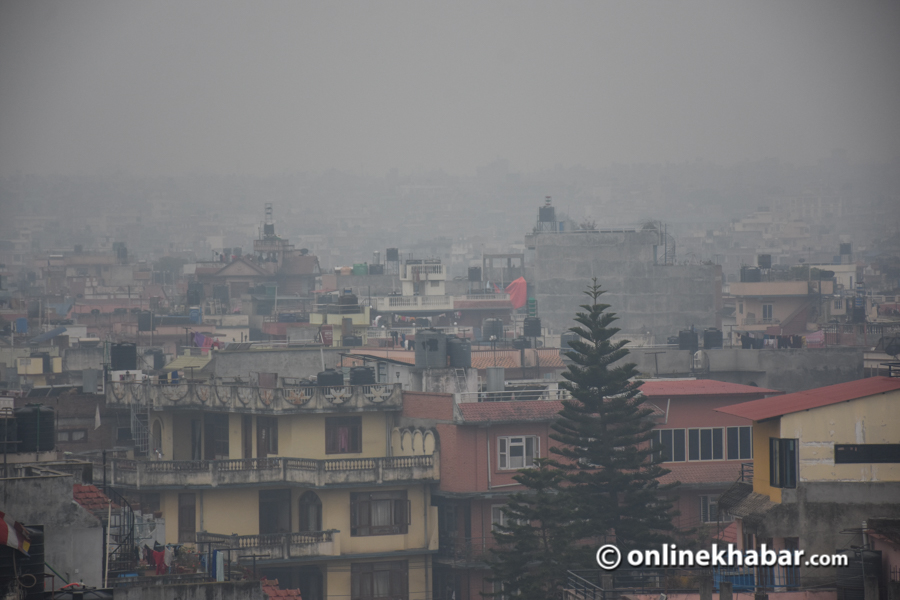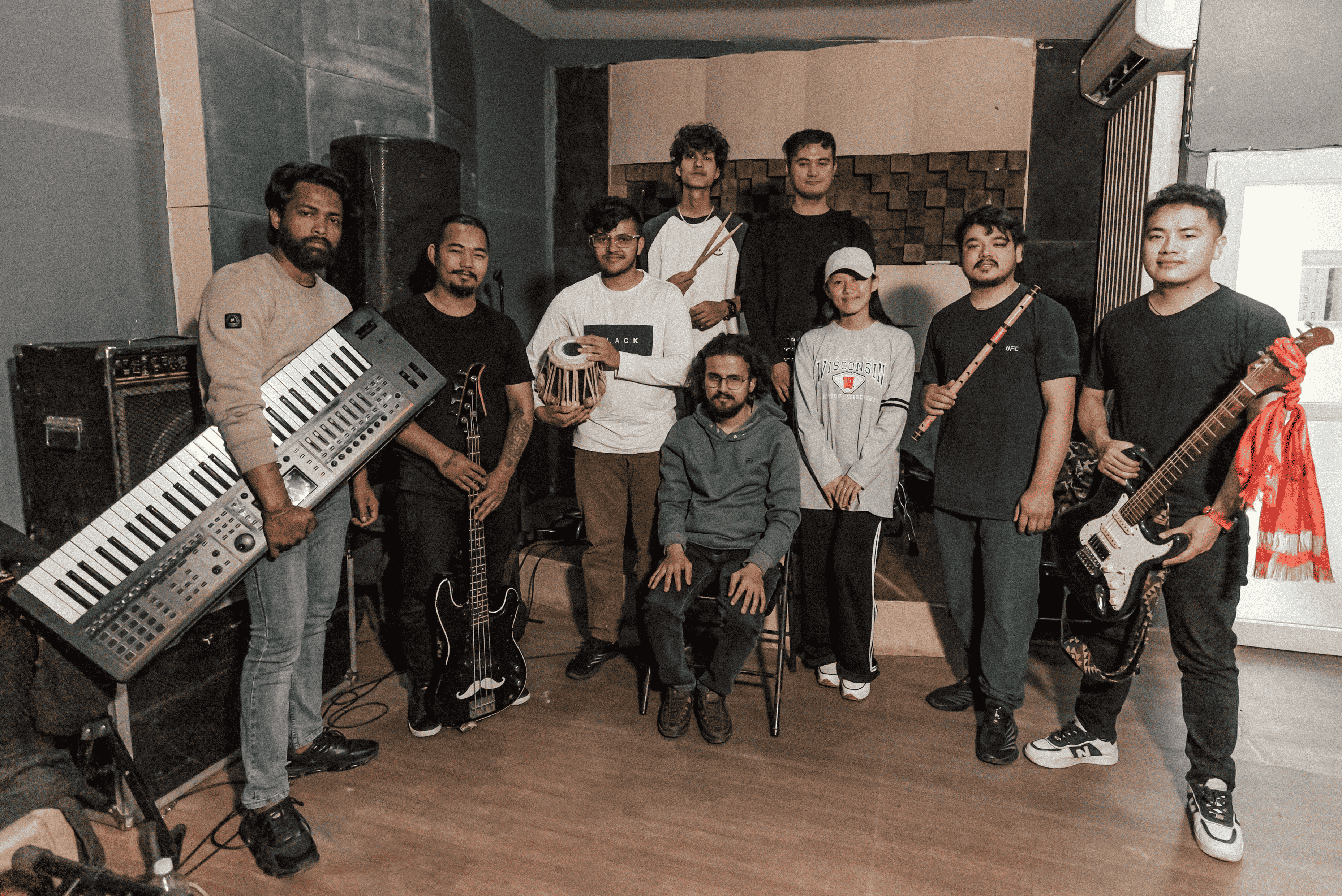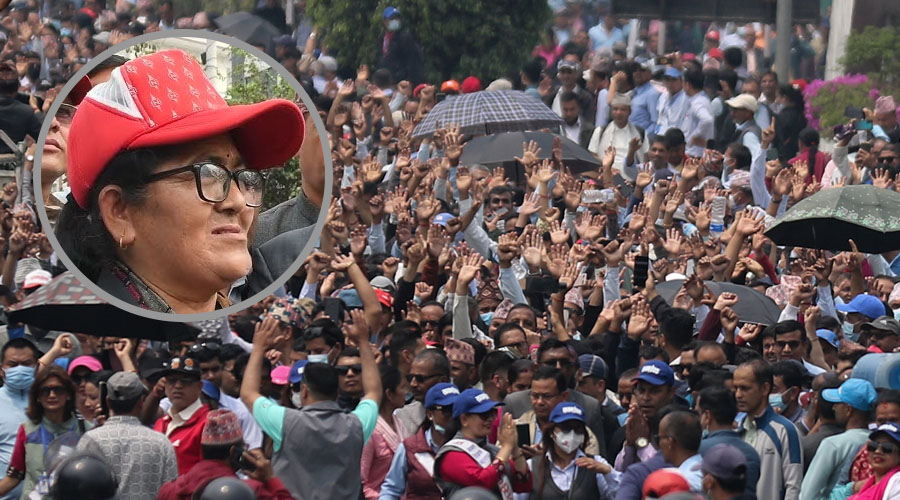
Devotees thronged the Pashupatinath Temple premises on the eve of Balachaturdashi to light lamps in memory of their ancestors. Observers of the festival stayed awake all night on Friday to offer lamps (deepdan) and began the morning ritual on Saturday by scattering Satbij (a mixture of paddy, barley, sesame, wheat, chickpeas, maize, and millet) in remembrance of the departed souls.
Balachaturdashi, celebrated annually on Margashirsha Krishna Chaturdashi, attracts devotees from various parts of the country to Pashupatinath. The ritual begins early on the preceding day with the lighting of lamps by devotees gathered since morning. On Friday night, they kept vigil, performing deepdan for their ancestors.
The Satbij scattering ritual occurs across sacred sites, including the 108 Shivalingas, Kailash, Surya Ghat, Gauri Ghat, Arya Ghat, Guhyeshwari, Pashupati, Mrigasthali, Vishwarupa, and Kirateshwar. At Mrigasthali, devotees visit the Bahira Ganesh shrine, shake the idol, and loudly request it to deliver their messages to the departed souls.

Crowds and security
Devotees began gathering early Friday morning, occupying spaces to light lamps. Security personnel were deployed from Thursday to manage the crowd and ensure the smooth conduct of rituals.
No shops allowed in Kailash area
To facilitate smooth rituals for devotees, the Pashupati Area Development Trust (PADT) prohibited shops in the Kailash area this year. PADT had received complaints in the past about the inconvenience caused by vendors. Shops are now allowed only in the Bhuwaneswari to Banakali area. PADT warned that violators would face legal action.
Entry and fees
Access to Kailash Hill for lighting lamps will begin at 2 pm on Friday, with devotees required to register and pay a fee of Rs 2,100.
Prohibition on meat and alcohol
The sale and distribution of meat, alcohol, and similar items have been banned in the Pashupatinath area during the festival.
Facilities for devotees
Kathmandu Metropolitan City has arranged free public toilets, while Kathmandu Valley Drinking Water Limited has been requested to ensure adequate water for the fair. The PADT has provided tents, with five large ones supplied by the Nepal Army, to protect devotees from the winter cold.
According to PADT spokesperson Rewati Raman Adhikari, security, traffic management, sanitation, and other logistics for the fair have been fully prepared. Information dissemination, health services, water supply, electricity, shop allocation, and volunteer mobilization are also in place for the smooth operation of the event.




